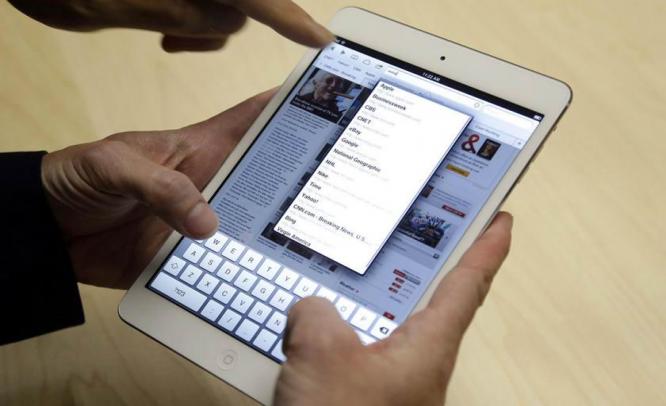Apple had been ordered to stop importing versions of the Chinese made iPhone 4 and iPad 2- 3G designed networks run by AT &T, T-Mobile U.S. Inc, and two regional carriers in Alaska and Texas.
5th August 2013
In a major blow to Samsung, The Whitehouse stepped into a patent war between Samsung Electronics Company and Apple Inc., by overturning a decision that banned the sale of certain iPads and iPhones by Apple in the United States. Samsung’s patent infringement victory over Apple turned hollow after President Obama’s administration overturned an order barring shipments of certain older iPhone models into the U.S.
In a rare move, which could be a huge blow to its competitor Samsung, U.S. Trade Representative Michael Froman in a letter said he had “disapproved” the exclusion order by the U.S. International Trade Commission. Apple had been ordered to stop importing versions of the Chinese made iPhone 4 and iPad 2- 3G designed networks run by AT &T, T-Mobile U.S. Inc, and two regional carriers in Alaska and Texas. It is the first time since 1987 that U.S. administration had used its discretionary powers to veto a product ban ordered by the commission and comes at a time when the two technological heavyweights in the telecom sector are fighting a legal battle. Earlier in June this year, the commission had issued a “limited exclusion” order for certain devices made by Apple, in a victory for the South Korean firm after a huge loss in the court fight with its U.S. rival last year.
“We applaud the administration for standing up for innovation in this landmark case” Apple spokesman Kristine Huguet said.
Unwilling Licensee ?
Nam Ki Yung, a spokesman at Samsung Headquarters expressed displeasure through a text message communicative to the media “We are disappointed that the U.S. Trade Representative has decided to set aside the exclusion order issued by the U.S. International Trade Commission. The ITC’s decision correctly recognized that Samsung has been trying to negotiate a license in good faith and that Apple remains unwilling to take a license”
The decision by the ITC comes after four U.S. Senators comprising of Republicans James Risch of Idaho, Mike Lee of Utah and Democrats Amy Klobuchar of Minnesota and Barbara Boxer of California wrote to Froman on July 30th, asking him to assess the substantial public interest considerations” of using standard patents at the ITC.
Samsung demanded 2.4 percent of Apple’s iPhone and iPad revenues, which would come to $ 18 per phone, Apple in its filing to the trade representative had accused Samsung of being unreasonable. Samsung on the other hand had accused Apple of being an “unwilling licensee of Samsung’s declared essential patents”. Samsung under scrutiny from European regulators on allegations of patent misuse had agreed not to seek sales bans based on its essential standard patents in Europe. However, in U.S. the Seoul based telecom giant made no such promise and defended its position saying, Apple refused to pay on any terms.
Leverage Against Competitors
The Samsung patent covers in a way data are transmitted over communications networks. It’s a feature in a widely used technological standard agreed on by the mobile device industry. Companies that work to establish standards have the advantage of knowing their inventions have to be used in all products in an industry. In turn, they pledge to license any relevant patents on fair and reasonable terms. Froman said “There’s a risk standard patent holders could be gaining “undue leverage” and engaging in patent holdup” i.e, asserting the patent to exclude an implementer of the standard from a market to obtain a higher price for use of the patent than would have been possible before the standard was set”
The decision is a relief for Apple as its share in the global smart phone market fell to 13.1 percent during the April-June period according to research firm IDC.

